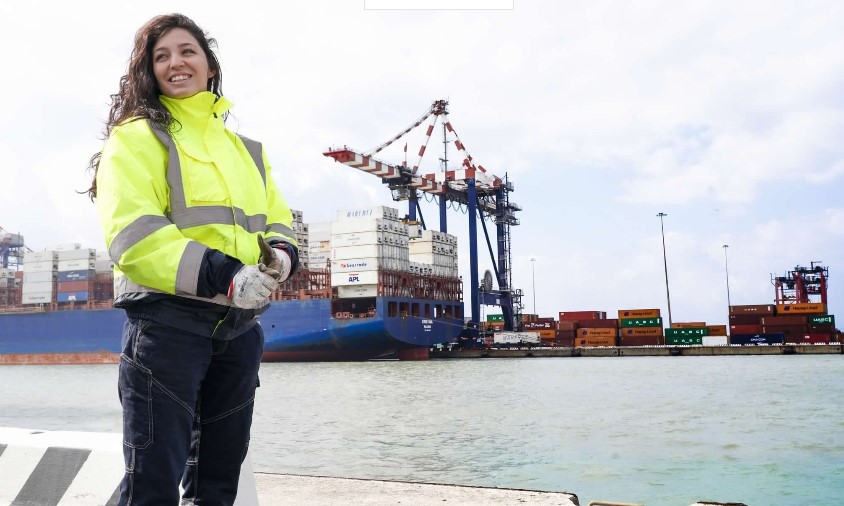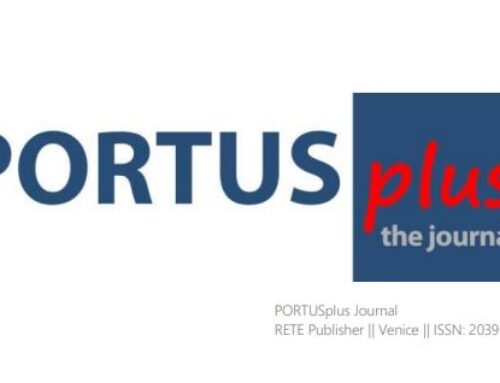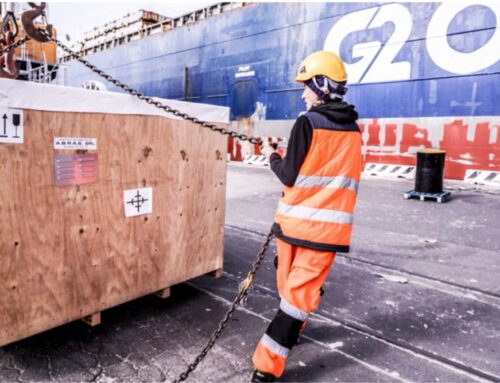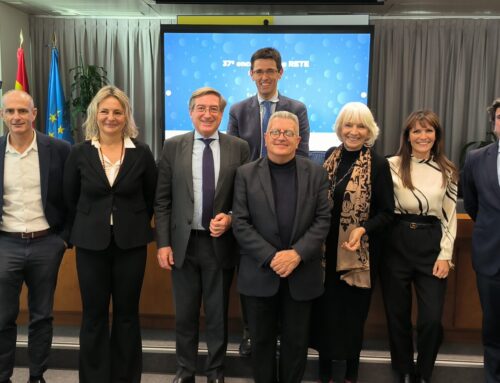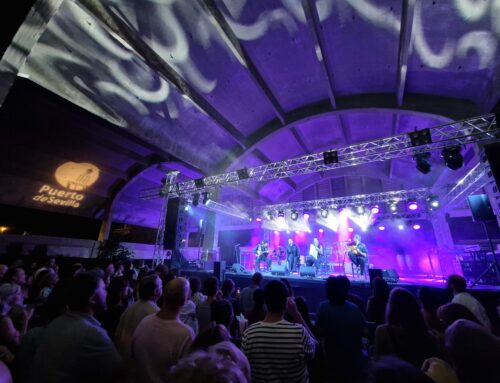RETE, the Association for Collaboration between Ports and Cities, has published issue 47 of its digital magazine PORTUS. Considered an international scientific reference in the knowledge of port cities, the magazine devotes significant space in this issue to the role of women in the port and maritime world in its Report section. This biannual publication is valued by international experts as an essential tool for the study and dissemination of works and experiences in the field of port-city relations and urban-port requalification initiatives.
José Luis Estrada, director of PORTUS, emphasizes the importance of integrating more women into the port industry, highlighting the current low female representation. “Automation and digitization in ports are changing this landscape. Through the articles in this new issue, barriers such as the dominant male culture and the lack of work-life balance are highlighted. Measures need to be adopted, such as improving inclusion, sharing experiences, and collecting better data. Leveraging female potential is essential for sustainable development and social responsibility in ports,” he asserts.
Meanwhile, Bárbara Bonciani, vice president of RETE in Italy and coordinator of the Report, points out that “the representation of women in the port sector is notably low, with only 18% globally. Cultural barriers and stereotypes persist, hindering their inclusion. Initiatives like the project ‘Women in the port and maritime sector, why not?’ held in Livorno seek to make women’s work visible and promote gender equality. Digitization and the green transition in ports open new job opportunities for women, facilitating their integration into this traditionally male sector.”
The Report includes interviews with prominent figures such as Teófila Martínez Saiz, president of RETE and the Port Authority of the Bay of Cadiz, and articles on female participation and gender equality in Mediterranean, Northern European, and Latin American ports, as well as port and transport associations and federations.
The first section of the REPORT is dedicated to the European experience, with contributions from: Isabelle RYCKBOST – Secretary General of the European Sea Ports Organization (ESPO); Secretary General of the Federation of European Private Port Companies and Terminals (FEPORT); Policy Officer in the Port Section of the European Transport Workers’ Federation (ETF); Luciano GUERRIERI – President of the Port System Authority of the Northern Tyrrhenian Sea in Italy; Emma COBOS – Director of Innovation and Business Strategy at the Port of Barcelona in Spain; Loli DOLZ – Journalist and Director of Publications at Diario del Puerto in Valencia, Spain; Marie Sklodowska-Curie Researcher at TU Delft, Netherlands.
The second part of the REPORT is dedicated to the Latin American experience, with articles from: Miriam Sara REPETTO (WISTA Peru); Mariela GUTARRA RAMOS et al. (APN – National Port Authority, Lima Peru); Lilian IRLANDA ASTUDILLO et al. (Port Works, Ministry of Public Works, Chile); and María Cristina GONTIJO PERES VALDEZ SILVA (Santa Cecilia University – UNISANTA and Center of Excellence of the Port of Santos – CENEP Brazil).
Additionally, the “Focus” section includes articles on the cultural and urban transformation of port cities such as Santander and Palermo; innovative projects in ports like Almeria, Malaga, and Cartagena; and the cultural agenda of the port of Buenos Aires.
PORTUS dedicates the Portrait section to the presentation of the city of Catania and its port, including interviews and articles on urban development, sustainability, and tourism, coordinated by Elena Cocuzza and Matteo Ignaccolo from the Department of Civil Engineering and Architecture at the University of Catania.
Other sections address topics on port development, geopolitics, and urban gastronomy strategies; book reviews; calls for papers; and conferences on port research and planning in Europe.
Primarily published in English, PORTUS also includes articles in other official RETE languages: Spanish, Portuguese, Italian, and French.
Issue 47 of PORTUS is available at the following link: https://portusonline.org/

